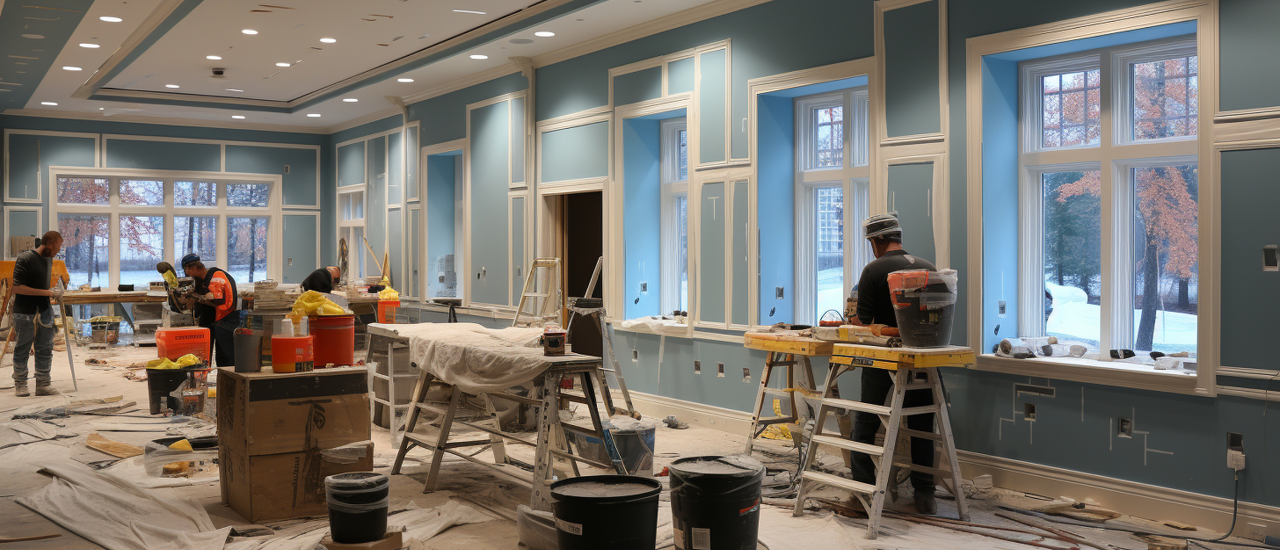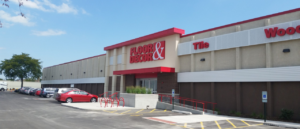The business sector is transforming its construction methods through modular construction. Instead of building everything on-site, modular construction allows for pre-made building sections to be built off-site and then assembled at the final location. The commercial remodeling industry Chicago implements this approach because of its three distinct advantages i.e. speed, cost efficiency, and infrastructure maintenance. The commercial sector is thriving with modular construction as businesses now use this method to build efficient sustainable remodeling solutions in offices, stores, warehouses, and healthcare buildings.
What is Modular Construction?
Companies use modular construction to manufacture building modules off-site at controlled facilities before bringing them on-site. The built-in electrical, plumbing, heating, ventilation, and air conditioning systems in these modules enable faster construction.
Why Modular Construction is Gaining Popularity in Chicago
Modular construction has become a widespread choice for builders because of its numerous advantages in the marketplace. Some of these benefits are given below:
- Faster completion of projects
Traditional commercial remodeling Chicago takes several months due to weather unpredictability, worker scarcity, and approval processing time. Time schedules for construction projects become faster when building developers work off-site with side-by-side site preparation and processes. This parallel workflow significantly reduces project completion times by 30-50%.
- Cost-Effective Commercial Remodeling
The increasing labor and material cost makes commercial remodeling Chicago more expensive. Modular construction compared to traditional construction methods reduces wastage and cuts labor costs to a minimum.
- Green and Sustainable Solutions
Sustainability is a priority for Commercial Remodeling Services Chicago. Modular construction allows building projects to be more eco-friendly with the help of effective materials, energy-saving solutions, and sustainable materials. Numerous modular projects in Chicago are eligible for LEED (Leadership in Energy and Environmental Design) certification.
- Minimal Business Disruptions
Commercial renovations can disrupt business operations and hence reduce revenue. Off-site work constitutes the majority of tasks in modular construction minimizing the disruption of work by reducing construction site noise and dust.
Key Sectors Adopting Modular Construction in Chicago
- Office Spaces
Businesses are remodeling their offices due to hybrid work patterns that can achieve better employee well-being while creating flexible work environments. The adaptable nature of modular construction enables fast and customized office redesigns and allows for partitioned areas.
- Retail and Hospitality
Chicago hotels and retail establishments use modular approaches to achieve building expansions and remodeling projects without interrupting business operations. Marriott and Starbucks have started building modular units to support their rapid growth plans.
- Healthcare Facilities
The healthcare industry depends on modular construction approaches to build new patient rooms, laboratories, and diagnostic centers without disrupting the delivery of healthcare services.
- Industrial and Warehousing
The demand for efficient warehouse spaces is rising. Modular construction helps in warehouse renovation Chicago by expanding storage capacity to meet logistics demands.
Challenges and Solutions in Modular Commercial Remodeling
- Regulatory and Zoning Compliance
The building codes enforced in Chicago can come as potential hurdles in Industrial Remodeling Chicago. Reliable modular construction companies help businesses fulfill all requirements required by local state law.
- Design Limitations
Certain designs in modular buildings face functional limitations due to restrictions on transportation and prefabrication processes. Prototype technologies, prefabrication methods, and 3D printing can help overcome these existing hurdles.
- Initial Investment Concerns
Although modular construction minimizes long-term expenditure, the initial investment can be significant because of factory fabrication. Modular construction enables Chicago warehouses to rapidly boost their storage capability in order to satisfy the rising logistics requirements.
Conclusion
Businesses in Chicago can now use a faster approach for commercial remodeling through modular construction that delivers sustainable outcomes with effective cost reduction. Modular techniques enable businesses to execute office renovations and retail expansions with flexibility and speed.
If you’re thinking of integrating modular solutions for your Chicago commercial remodeling project, seek advice from professionals at LM Decorating and discuss the most suitable solutions for your business requirements. You can contact us at (312) 687-8707.




